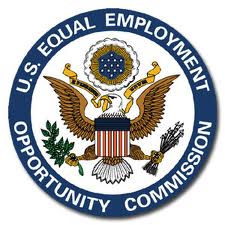 A female Postal Inspector filed a formal EEO complaint on March 29, 2005 alleging that the Postal Service denied her promotional opportunities based on race and sex. She stated that these non-selections were part of a continuing pattern of discriminatory promotion practices. The female Postal Inspector was seeking class certification for all African-American female Postal Inspectors at the Inspection Service Law Enforcement (ISLE)-12 level and above who were “denied, or deterred from applying for promotions at the Postal Service.”
A female Postal Inspector filed a formal EEO complaint on March 29, 2005 alleging that the Postal Service denied her promotional opportunities based on race and sex. She stated that these non-selections were part of a continuing pattern of discriminatory promotion practices. The female Postal Inspector was seeking class certification for all African-American female Postal Inspectors at the Inspection Service Law Enforcement (ISLE)-12 level and above who were “denied, or deterred from applying for promotions at the Postal Service.”
Initially, an Administrative Judge denied class certification and the case was remanded for additional information. EEOC ordered the Postal Service to obtain information concerning the race and sex of persons who were not selected for the Career Ladder Program, ISLE-13 and ISLE-15 level positions, and persons who were not placed on the ISLE-15 Selection Register during the applicable period. On remand, the Administrative Judge again denied class certification, finding that Complainant failed to establish “commonality, typicality, and numerosity.”
On appeal, EEOC reverses Administrative Judge’s decision
EEOC found that the Complainant and other African-American female Postal Inspectors’ lack of promotional opportunity (combined with the Postal Service’s internal review, which noted that the [former] Chief Postal Inspector and the [former] Assistant Chief Postal Inspector were directly accountable for the assignment of Postal Inspectors), was “a sufficient factual basis to infer a policy or practice of discrimination.” There was no dispute that the Chief Postal Inspector was Chairman of the review board and involved in many of the promotional decisions for Postal Inspectors.
Additionally, the case contained an e-mail from the [former] Chief Postal Inspector which the EEOC translated it as meaning to “be careful with Blacks.” The EEOC stated that the e-mail was “further evidence from which to infer that there was a policy or practice of discrimination.” The case also contained evidence from Complainant and others showing that African-American female Postal Inspectors applied for many promotions but were not selected for those positions. Thus, the female Postal Inspector established “commonality.” EEOC found that Complainant satisfied the criteria of “numerosity,” as “she specifically identified three other African-American female Postal Inspectors who were affected by the alleged discriminatory practice. She also stated that as many as 85 (down from the initial 93) other individuals suffered similar treatment.”
After 8 years,the Administrative Judge finally granted Class Certification in 2013.
This allegation is not an isolated situation concerning discrimination among African American women being promoted in the USPS. My case proves that they discriminate and attempt to fire you at any cost. They will also, when all else fails; do whatever they can to attempt to ruin your personal life. No one could have ever told me that once you give this organization a solid 100% of your life for 26 years that they would turn around and inflict this kind of evil against you. I still work here. However, I am watching my back everyday. And, I feel very strongly that retaliation to “Whistleblowers” do exist in this organization.